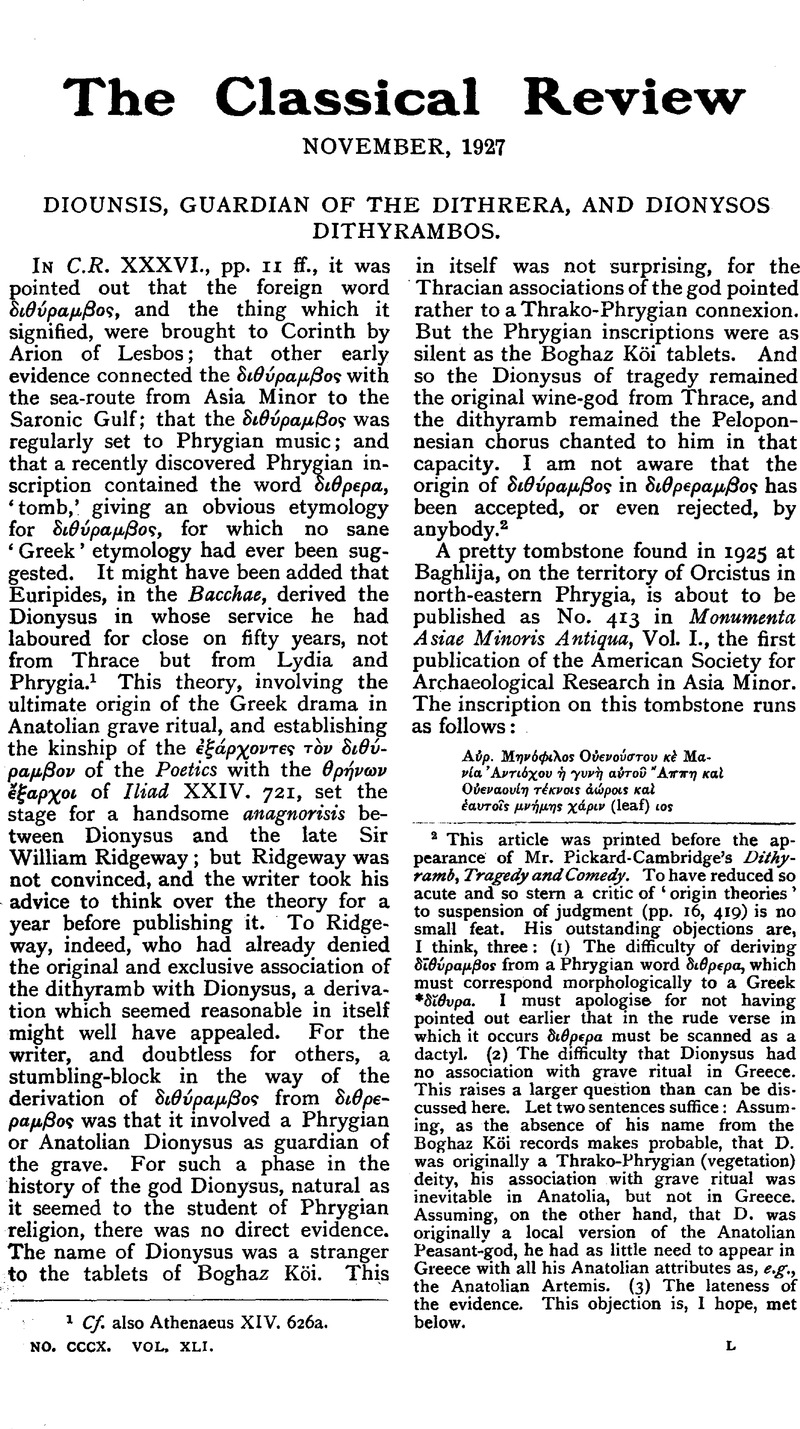Published online by Cambridge University Press: 27 October 2009

page 161 note 1 Cf. also Athenaeus XIV. 626a.
page 161 note 2 This article was printed before the appearance of Mr. Pickard-Cambridge's Dithyramb, Tragedy and Comedy. To have reduced so acute and so stern a critic of ‘origin theories’ to suspension of judgment (pp. 16, 419) is no small feat. His outstanding objections are, I think, three: (1) The difficulty of deriving δῑθραμβος from a Phrygian word διθρερα, which must correspond morphologically to a Greek *δῐθυρα. I must apologise for not having pointed out earlier that in the rude verse in which it occurs διθρερα must be scanned as a dactyl. (2) The difficulty that Dionysus had no association with grave ritual in Greece. This raises a larger question than can be discussed here. Let two sentences suffice: Assuming, as the absence of his name from the Boghaz Köi records makes probable, that D. was originally a Thrako-Phrygian (vegetation) deity, his association with grave ritual was inevitable in Anatolia, but not in Greece. Assuming, on the other hand, that D. was originally a local version of the Anatolian Peasant-god, he had as little need to appear in Greece with all his Anatolian attributes as, e.g., the Anatolian Artemis. (3) The lateness of the evidence. This objection is, I hope, met below.
page 162 note 1 Οὐρανς has no ‘etymology,’ and may be an Anatolian loan-word. Ουρανιος may quite well be Phrygian (Fraser).
page 162 note 2 Bulletin of the John Rylands Library, VIII., 1924, P. 352.Google Scholar
page 162 note 3 Journal of the Manchester E. and O. Soc., No. XI., 1924, p. 23.Google Scholar
page 163 note 1 It is not necessarily the exact form of the name as used in Phrygia early in the first millennium B.C., although the other divine names used in the Neo-Phrygian texts preserve the ancient forms. These texts even go out of their way to introduce the famous βεκς of Hdt. II. 2.
page 163 note 2 The ordinary prose words for the ‘tomb’ and ‘monument’ are κνουμαν and μανκα. The form διθρερα occurs in a verse inscription, and is probably ancient. Dithyrambos as a title points to *Dithreran-bas, ‘Lord of the Tomb’; cf. Lycabas, Korybas, etc.